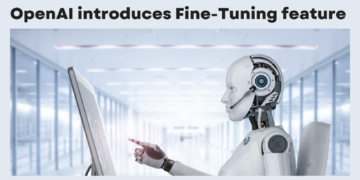Google Search is making strides in redefining how users interact with web-based information by introducing advanced Generative AI capabilities. Just three months after its Generative AI-powered Search experience (SGE) launch, Google is unveiling upgrades aimed at empowering users to comprehend complex concepts, enhance coding skills, and efficiently digest information while browsing the internet.
Google Search to Show Definitions within AI-generated Responses
To simplify research and exploration, Google Search is introducing improvements to AI-generated responses, specifically for science, economics, history, and more subjects. Users will soon be able to effortlessly hover over unfamiliar terms within these responses, previewing instant definitions and related diagrams or images. This feature aims to provide a holistic understanding of intricate subjects and foster a smoother learning experience.
Coding Unveiled with Google Search : Syntax Highlighting in AI Overviews
Google is enhancing its SGE by introducing syntax highlighting within AI-generated overviews. These overviews offer guidance across various programming languages and tools, addressing queries and suggesting code snippets for common tasks. Now, code segments within these overviews will be color-coded, expediting the identification of critical elements like keywords, comments, and strings. The feature aims to enhance code comprehension at a glance. This will ultimately assist programmers in debugging and understanding generated code more effectively.
Google Search: “SGE while Browsing”
Introducing “SGE while browsing” marks a pivotal step in Google’s pursuit of seamless information assimilation. This feature aims to help users delve deeper into lengthy web content and effortlessly extract pertinent details. Available on the Google app for Android and iOS and soon to be accessible via Chrome on desktop, this innovation assists users in navigating complex web pages with ease.
On certain web pages, users can tap to generate AI-generated lists of key points covered in an article. These lists include links that lead directly to the specific sections users seek. Furthermore, the “Explore on page” functionality allows users to uncover answers to questions posed in the article. This will provide a multidimensional understanding of the content.
Learning for All: Accessibility and Ethical Considerations
While these advancements are poised to enhance the learning experience for many users, Google is attentive to inclusivity and ethical considerations. The “SGE while browsing” feature is designed to exclusively provide AI-generated key points for freely accessible web articles. This approach ensures that publishers maintain control over the accessibility of their content. Articles marked as paywalled will not display key points, maintaining publishers’ desired levels of access control. Google aims to maintain a delicate balance between empowering users to learn while respecting publishers’ rights.
Embracing the Future of Learning and Interaction
The recent upgrades in Google Search’s generative AI capabilities underscore the tech giant’s commitment to reshaping how information is absorbed and comprehended on the internet. These advancements benefit students, researchers, and professionals seeking to sharpen their coding skills or extract vital information from complex web content. As “SGE while browsing” enters its experimental phase, Google remains steadfast in gathering user feedback and refining the feature to better serve publishers and users.



























